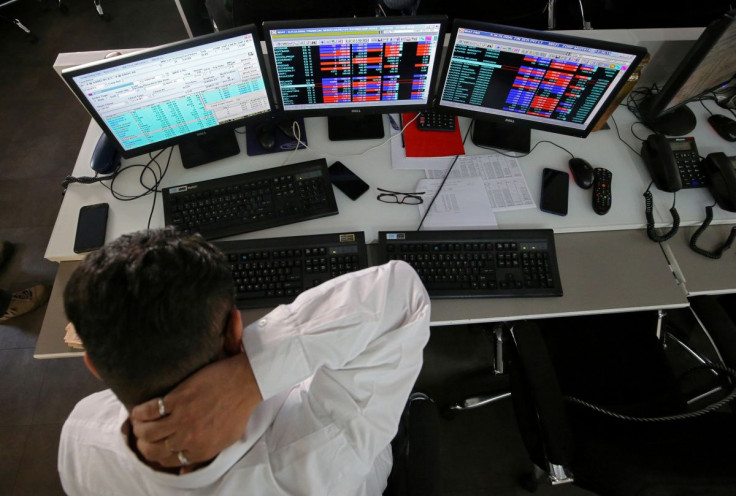Global Shares, Oil Rises As U.S. Bans Russian Oil Imports

Global share markets slid lower on Tuesday as oil remained near record highs after the United States banned Russian oil and other energy imports, stoking volatility and concerns about inflation.
U.S. President Joe Biden banned imports of Russian oil and gas energy. Britain announced shortly before Biden's remarks that it would phase out the import of Russian oil and oil products by the end of 2022.
Oil's surging prices tempered some on the news, with the international oil benchmark Brent crude for May climbing by 2.29% to $122.13 at 12:45 p.m. EST (1745 GMT), down from its high of more than $139 a barrel in the previous session.
Since Russia invaded Ukraine on Feb. 24, Western sanctions have cut Russia off from international trade and financial markets.
Russia, which calls its actions in Ukraine a "special operation," had warned that prices could surge to $300 a barrel and it might close the main gas pipeline to Germany if the West blocks oil imports over its invasion of Ukraine.
Jason McMann, head of geopolitical risk analysis at Morning Consult, called the U.S. ban on Russian oil imports noteworthy, but said the "real show-stopper" would be Europe banning Russian energy imports.
"Given Europe's relatively high dependence on energy supplies from Russia, such a move, if it materializes, would have major economic and geopolitical ramifications," McMann said.
In the absence of such a ban, markets reacted positively to the U.S. ban, reversing direction to edge slightly higher in midday trade.
The MSCI world equity index, which tracks shares in 50 countries, gained 0.44%.
The Dow Jones Industrial Average rose 444.6 points, or 1.35%, the S&P 500 gained 48.35 points, or 1.15%, and the Nasdaq Composite added 229.16 points, or 1.79%. The STOXX 600 was down 0.51%.
Solita Marcelli, chief investment officer in the Americas for UBS's wealth management arm, said the increase in oil prices over the past week -- the second biggest jump 30 years -- is likely to stick around, causing continued market volatility.
"The Russia-Ukraine war has driven oil prices up faster than we previously expected, but we continue to see a tight supply-demand balance for crude oil globally, even if the hostilities end and the geopolitical risk premium attached to crude declines," Marcelli said.
U.S. crude recently rose 2.29% to $122.13 per barrel, while prices of safe-haven spot gold added 1.9% to $2,035.30 an ounce.
The London Metal Exchange (LME) halted nickel trading on Tuesday after prices doubled in just hours to a record $100,000 per ton, fueled by a race to cover short positions.
UBS Global Wealth Management recommended a neutral stance on equities and advised clients to hold commodities, energy stocks and the U.S. dollar as portfolio hedges in the short term.
The rally in oil and other commodities has heightened investor fears about global inflation. Data this week is expected to show the U.S. consumer price index climbed a stratospheric 7.9% on a year-on-year basis in February, up from 7.5% in January.
Germany's benchmark government bond yield rose sharply and a gauge of long-term euro zone market inflation expectations rose to its highest level since late 2013.
The U.S. Treasury 10-year yield was at 1.868%.
The euro was up 0.75% to $1.0933, after taking a beating and falling 3% last week to its lowest level since mid-2020.
The dollar index fell 0.32%.
© Copyright Thomson Reuters 2024. All rights reserved.




















